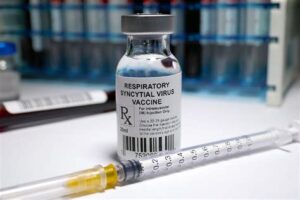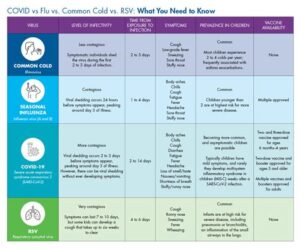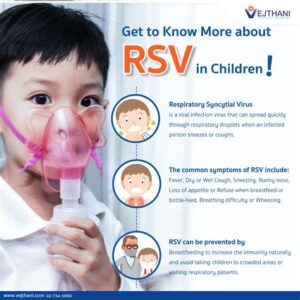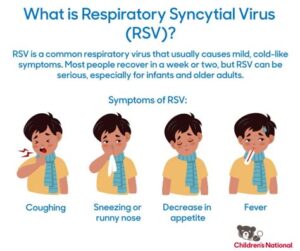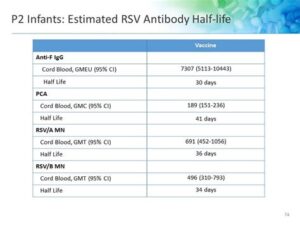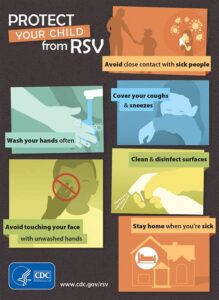Discover the RSV vaccination: its benefits, locations, eligibility, and potential side effects. Ensure you have the essential information for informed decisions.As respiratory syncytial virus (RSV) continues to impact communities, understanding the vaccine options available is crucial for protecting vulnerable populations, particularly infants and older adults. In this blog post, we will delve into the RSV vaccination, exploring what it is and where you can receive it. We will also outline the numerous benefits of being vaccinated, identify who should consider getting the vaccine, and discuss potential side effects to be aware of. Whether you are a parent, a caregiver, or someone seeking information for your loved ones, this guide aims to empower you with essential knowledge about the RSV vaccination and its role in safeguarding respiratory health. Join us as we navigate this vital topic together, ensuring you have the information you need to make informed decisions regarding RSV immunity.
What is the RSV vaccination?
The RSV vaccination is designed to protect individuals, especially infants and young children, from respiratory syncytial virus (RSV), which can lead to serious respiratory infections. RSV is a common virus that affects nearly all children before their second birthday, often resulting in mild cold-like symptoms. However, for some, particularly premature infants or those with underlying health conditions, RSV can be severe and potentially life-threatening.
The RSV vaccine works by priming the immune system to recognize and fight the virus. Recent developments have led to the creation of a preventative vaccine that is safe and effective in reducing the risk of severe RSV infections. The vaccine is administered through a shot and is particularly crucial for at-risk populations.
New data indicates that the RSV vaccination can significantly lower hospitalizations and complications associated with the virus, providing peace of mind for parents and caregivers. The vaccine is recommended for infants during the RSV season, which typically occurs in the fall and winter months.
Locations offering the RSV vaccination
As the need for the RSV vaccination increases, many individuals may wonder where they can receive this important immunization. Fortunately, there are a variety of locations that offer the RSV vaccination to ensure widespread accessibility.
- Primary Care Clinics: Many local clinics offer the RSV vaccination as part of their routine immunization services.
- Pediatricians’ Offices: If you’re looking for the RSV vaccination for a child, pediatric offices are one of the most reliable places to inquire.
- Pharmacies: Chains like CVS, Walgreens, and others often provide vaccinations, including the RSV vaccination, without the need for an appointment.
- Community Health Centers: These centers frequently run vaccination clinics and can provide the RSV vaccination at low or no cost.
- Hospitals: Larger hospitals may have outpatient services where the RSV vaccination can be administered.
It’s essential to check beforehand with these locations, as availability may vary. Consider calling to confirm that they have the RSV vaccination in stock and understand any requirements before heading in.
Moreover, it’s worthwhile to look for any upcoming vaccination events or clinics hosted by local health departments or community organizations. These events can often provide the RSV vaccination at no cost, making it an excellent option for those who might be financially constrained.
Staying informed and proactive about getting the RSV vaccination can significantly contribute to community health, especially for vulnerable populations. Always consult with a healthcare provider if you have questions regarding the vaccination process or eligibility.
Benefits of the RSV vaccination
The RSV vaccination offers numerous benefits that can significantly impact public health, particularly for vulnerable populations. One of the primary benefits is the reduction in respiratory syncytial virus (RSV) infections, which can lead to severe respiratory issues, especially in infants and the elderly. By decreasing the incidence of RSV, this vaccination helps lower hospitalization rates and healthcare costs associated with treating severe infection cases.
Another notable benefit of the RSV vaccination is its ability to protect not only vaccinated individuals but also those around them. This form of community immunity is essential, especially for individuals who are unable to receive the vaccine due to health reasons, ensuring that they are less likely to be exposed to the virus.
Lastly, research has shown that the RSV vaccination can enhance the overall quality of life by preventing the complications that arise from RSV infections. Many individuals experience long-term health challenges after severe RSV infections, so vaccination plays a vital role in preventing these future complications.
Who should get the RSV vaccination?
Respiratory Syncytial Virus (RSV) is a significant cause of respiratory illness, particularly in infants and young children. As such, the RSV vaccination is crucial for certain high-risk populations. Understanding who should receive this vaccination can help ensure that the most vulnerable individuals are protected from severe outcomes associated with RSV.
- Infants born prematurely (especially those born before 35 weeks of gestation)
- Infants with certain medical conditions, including congenital heart disease or chronic lung disease
- Children under 2 years old who have a history of severe respiratory illnesses
- Elderly individuals, particularly those with compromised immune systems or other chronic health issues
It’s essential for caregivers and healthcare providers to assess the risk factors each individual may have and determine their eligibility for the vaccination. If you believe you or your child fits into one of these categories, consult with a healthcare professional to discuss the best options for protection against RSV.
Potential side effects of the RSV vaccination
The RSV vaccination is a crucial advancement in the fight against Respiratory Syncytial Virus, especially for vulnerable populations. However, like any medical intervention, it can have potential side effects. Understanding these side effects is essential for making informed decisions regarding vaccination.
- Injection site reactions – This could manifest as pain, redness, or swelling where the vaccine was administered.
- Fever – A mild fever may occur as the body responds to the vaccine.
- Fatigue – Some individuals may experience a sense of tiredness following vaccination.
- Headache – Mild headaches can be a transient effect.
- Muscle pain – Temporary muscle aches are also reported.
While most side effects are mild and self-limiting, it’s essential to monitor for any severe reactions. If you experience symptoms such as difficulty breathing, swelling of the face or throat, or a rapid heartbeat, you should seek medical attention immediately. These could indicate a rare but serious allergic reaction to the RSV vaccination.
Frequently Asked Questions
What is the RSV vaccination?
The RSV vaccination is a vaccine designed to protect against respiratory syncytial virus (RSV), which can cause severe respiratory infections, particularly in infants and young children.
Who is eligible for the RSV vaccination?
The RSV vaccination is primarily recommended for infants, particularly those at high risk due to prematurity, underlying health conditions, or weakened immune systems.
Where can I find the RSV vaccination?
You can get the RSV vaccination at pediatrician offices, hospitals, and clinics that offer immunizations, specifically those that cater to infants and children.
How much does the RSV vaccination cost?
The cost of the RSV vaccination can vary depending on the healthcare provider and insurance coverage, but many insurance plans cover it for eligible infants.
At what age should infants receive the RSV vaccination?
The RSV vaccination is typically given during the RSV season, which varies by region, starting at around 2 months of age for at-risk infants.
Are there any side effects of the RSV vaccination?
Common side effects may include mild fever, irritability, or soreness at the injection site, but serious side effects are rare.
Can adults receive the RSV vaccination?
Currently, there is no RSV vaccination approved for adults, but research is ongoing to develop vaccines that may be suitable for older populations.
